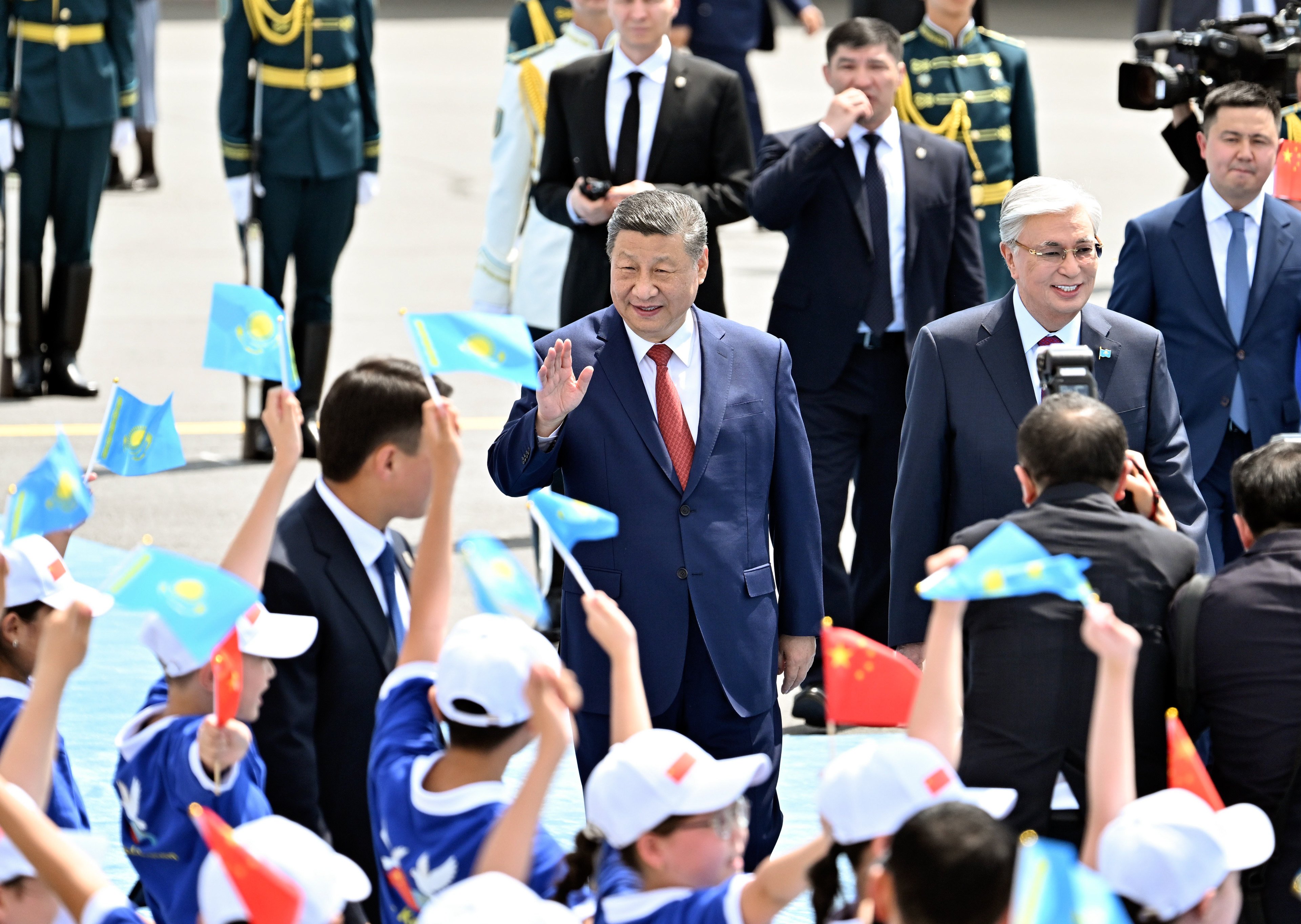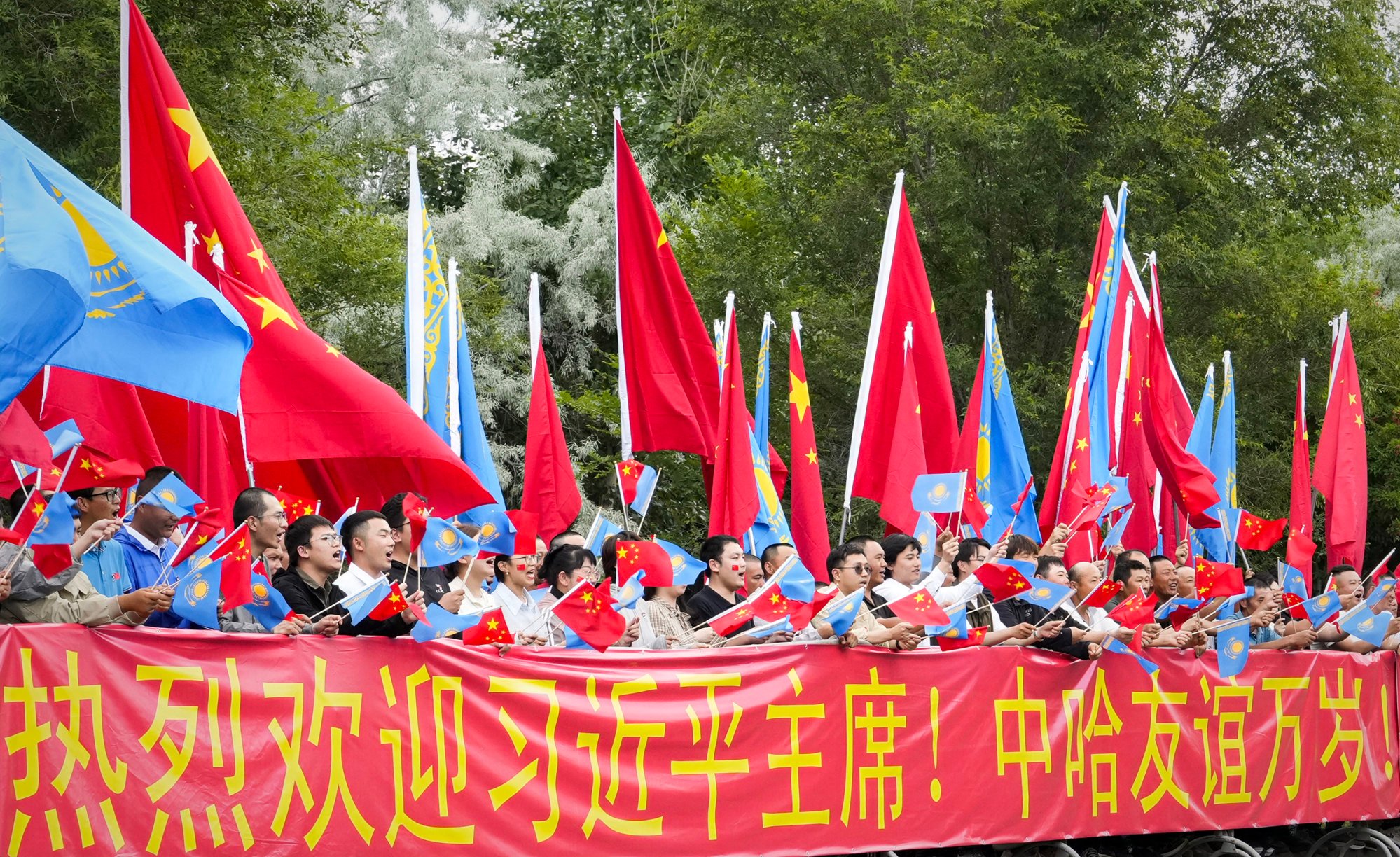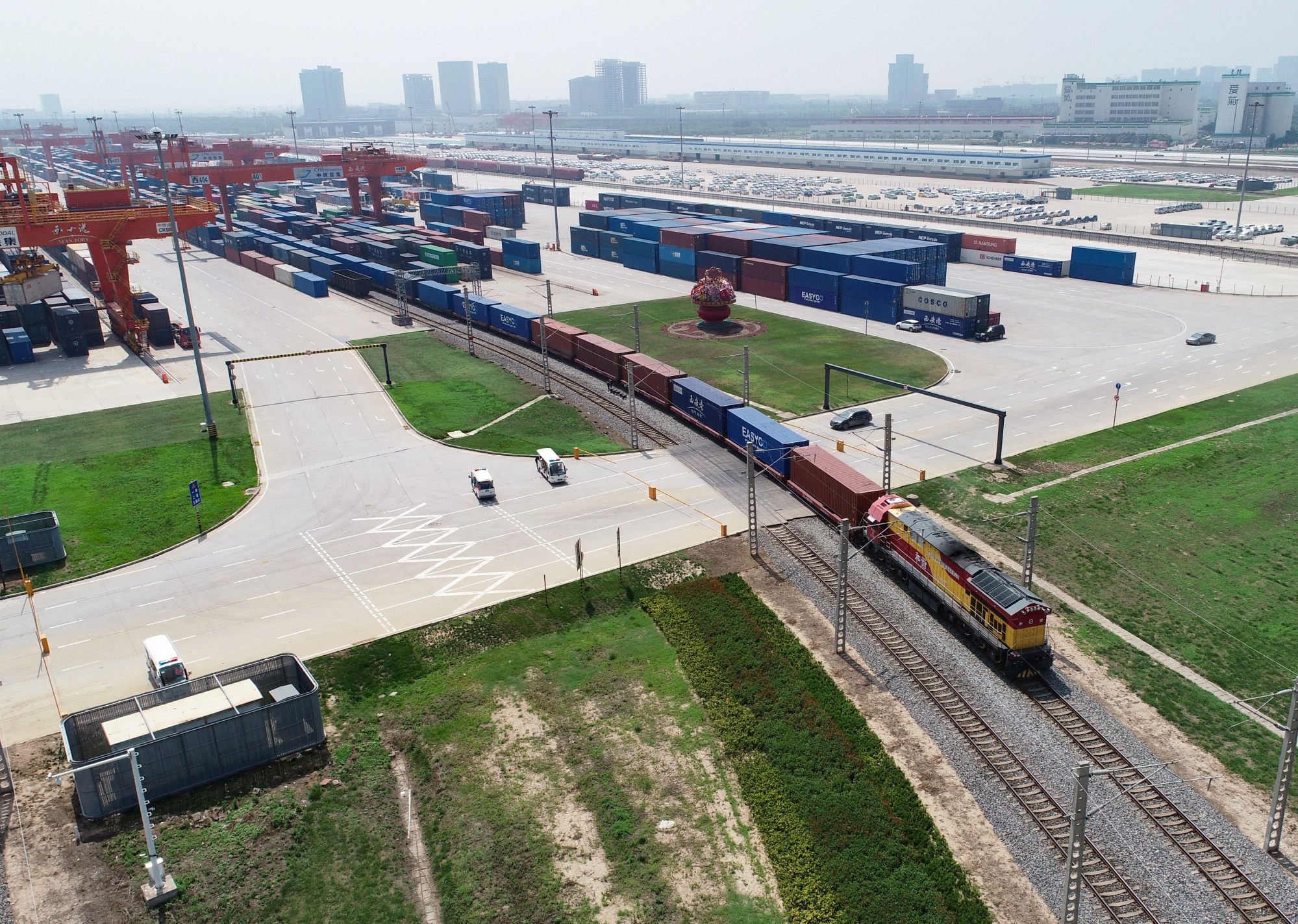Why China’s Central Asian footprint is about to get bigger
Boosted by proximity and broad policy objectives, Beijing is slowly gaining the upper hand in the region over Moscow and the European Union

As Israel’s war on Iran rages and Russia intensifies its missile and drone strikes on Kyiv, China is quietly expanding its influence in Central Asia.
The second China-Central Asia Summit, held in Astana in Kazakhstan last week, was an ideal opportunity for Beijing to strengthen economic and political ties not only with the host country but also with Kyrgyzstan, Uzbekistan, Turkmenistan and Tajikistan. The Astana Times reported that a total of 58 agreements worth nearly US$25 billion were signed between China and its regional partners. China also reached a series of bilateral agreements and memorandums of understanding with Kyrgyzstan and Tajikistan.
Earlier this week, Kazakhstan announced that China National Nuclear Corporation would lead a project aimed at building another nuclear power plant in the Central Asian country. These developments indicate that Beijing’s influence in this strategically important region is only growing.
However, that does not mean that other global actors are sitting idly by and watching as China strengthens its position in Central Asia. Earlier this year, the European Union sought to expand its ties with the region through the EU–Central Asia Summit format. It is not a secret that Brussels is eyeing Central Asian raw materials.
Russia, meanwhile, despite its preoccupation with the war in Ukraine, still sees the region as its “near abroad” and maintains relatively strong security ties with Kazakhstan, Kyrgyzstan and Tajikistan – all members of the Moscow-led Collective Security Treaty Organisation (CSTO).
The Kremlin also continues to exert its influence in Central Asia through the Eurasian Economic Union, while the EU is attempting to use its Global Gateway project to serve as an alternative to China’s Belt and Road Initiative. Brussels, however, faces a challenge because China, benefiting from geographic proximity to Central Asia, is currently ahead of the EU in the region.

In 2024, China’s overall turnover with Central Asia reached US$94.8 billion, dwarfing the EU’s trade volume with the region which, Uzbek President Shavkat Mirziyoyev told Euro News, is around €54 billion (US$62.1 billion).
Beijing is also ahead of New Delhi, another actor that aims to expand relations with Central Asia, particularly in the field of security. But even though China has a significant advantage over its competitors, it is unlikely to become the most dominant actor in the region.
Although Central Asian states undoubtedly want to strengthen economic ties with Beijing, most, if not all of them, continue to pursue what is known as a “multi-vector” foreign policy. In other words, their objective is to maintain a balance between all the major foreign powers operating in Central Asia, seeking to avoid falling into anyone’s geopolitical orbit.
Still, geography plays an important role in the new Great Game – a term coined to describe the rivalry between the 19th century British and Russian empires over influence in Central Asia. Kazakhstan, Kyrgyzstan and Tajikistan cannot ignore the fact that they border China. Beijing views these nations – as well as Uzbekistan and Turkmenistan – not only as economic partners but also as crucial transit routes linking China and Europe.

Fully aware of the importance of Central Asia, Chinese Lieutenant General Liu Yazhou, in his influential 2010 essay “On Advance Towards the West,” argued that mainland China’s future lies in consolidating its western frontier – particularly in the Xinjiang Uygur autonomous region and with Central Asia – rather than focusing solely on maritime ambitions.
That is why, over the past 12 years, Beijing has significantly strengthened economic ties with Central Asia through the Belt and Road Initiative. It will take considerable effort for the EU to ensure its Global Gateway project, launched in 2021, can effectively compete.
More importantly, in contrast to the European Union, China has adopted a much broader strategy. Its goal appears to be to shape the region’s long-term political alliances and economic frameworks in a way that reinforces China’s position while potentially undermining Western and, to some extent, Russian influence.
Before the China-Central Asia Summit, Kazakhstan also hosted the China-Central Asia Media Cooperation Forum, where attendees agreed to strengthen ties in the media sphere. Beijing also plans to expand educational and cultural exchanges with the Central Asian states, illustrating its efforts to increase its soft power in the region.
China views Central Asia through the lens of its broader Eurasian integration strategy, with resources being just one component of a wider economic and political relationship. Security is also an important aspect of Beijing’s Central Asia policy. Governments in the region have expressed support for China in the battle against the “three forces of evil” – terrorism, separatism and religious extremism. In spite of that, Chinese military influence in Central Asia remains relatively limited.
Although nominal Russian CSTO allies chose not to get involved in the Ukraine war, and Moscow continues to lose strategic positions in Central Asia to both China and the West, the Kremlin still retains some influence through security agreements.
Russia seems to have accepted China’s growing economic dominance in Central Asia and is now trying to maintain its traditional security role. The Kremlin likely views this arrangement as a form of manageable competition, within what it perceives as the broader framework of the Russian-Chinese strategic partnership against the West.
But if Russia does not achieve its goals in Ukraine and its strategic partner Iran is defeated by Israel and the United States, Central Asian states are likely to keep distancing themselves from Moscow. Such an outcome will almost certainly give China even more room to achieve some of its geopolitical goals in the energy-rich region.